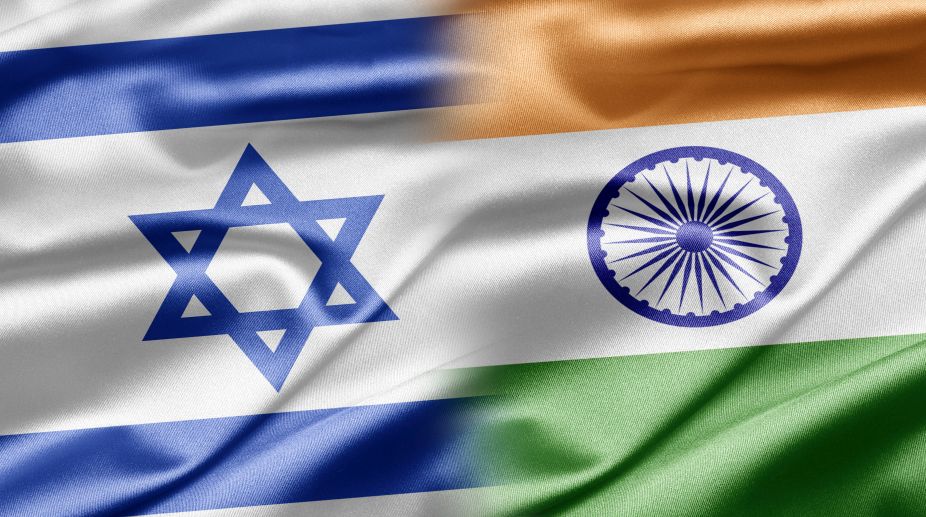The new year promises to usher in a time when pragmatism, which takes a cold, hard look at the relations among nations at the expense of soft sentimentalism, will be the driving force in many world capitals. While America under Donald Trump, the post-Brexit Britain and the European far right are likely to shun any humanitarian concern for the refugees fleeing Islamic terror and adopt a stern anti-immigration stance which mocks the Statue of Liberty’s call to the huddled masses, India, too, is reorienting its policies in the harsh light of the present-day realities.
If, in the process, it has to dispense with official positions which have lasted for years, so be it. The first example of the abandonment of the decades-old adherence to the so-called strategic restraint was in the matter of dealing with Pakistan.
It is not only the surgical strikes by the Indian army inside Pakistan following repeated attacks by Pakistan-based terrorists on Indian targets which showed how New Delhi has decided to adopt a more muscular approach towards its pesky neighbour, the new army chief, General Bipin Rawat’s observation about India’s preparedness for a war on two fronts ~ against Pakistan and China ~ also underlined an appreciation of the need to keep the powder dry.
The comment was of considerable significance since in March last year, the vice-chief of the Indian air force, BS Dhanoa, had said just the opposite. According to Air Marshal Dhanoa, India was not ready for a “two-front scenario” because “our numbers are not adequate”.
It is possible that in the intervening 8/9 months, the government and the army have reassessed their position and beefed up the armoury. Otherwise, General Rawal would not have been so categorical.
What the shift of emphasis shows is how the priorities have changed under the Narendra Modi government.
The change does not relate to military affairs alone, but also to diplomacy. A significant development in this regard is the transformation in India-Israel relations from cool to fairly warm.
As the Israeli ambassador in India, Daniel Carmon, has said, “In the last couple of years, we have seen a shift in various votes (by India in the UN) which reflects the present improvement in relations”.
However, even under the earlier non-BJP governments, India’s ties with Israel were gradually changing for the better. But the pace was slow because of the unstated fear in political and official circles that overt proximity towards Tel-Aviv would antagonize what New Delhi considered its traditional friends in the Arab world and also the Indian Muslims.
Furthermore, there was the Palestine factor with both the Congress and the communists being displeased with what was seen as an Israeli undermining of the so-called two-state solution by the building of Jewish settlements in the “occupied” territories.
The BJP has always been the odd man out in this respect from the Left-Liberals. And, now, under Modi, it has become far more active in moving close to Israel.
The catalyst for this development is Pakistan. There is a feeling in India ~ and not only among Right-wingers ~ that in the matter of countering terrorism, India and Israel are natural allies.
Israel, too, shares this perception. As the Jewish Virtual Library says, both the countries are “isolated democracies threatened by neighbours that train, finance and encourage terrorism”. A cooperative relationship, therefore, is a “strategic imperative”.
This “imperative” was in evidence when India under the Atal Behari Vajpayee government secured military hardware from Israel during the 1999 Kargil conflict with Pakistan.
Since then, India has struck a deal with Israel for the supply of anti-tank guided missiles as well as missile launchers. But it is not weapons which interest India so much as Israel’s highly effective counter-insurgency measures. Lessons in this field can help India both against Pakistani terrorists and the home-grown Maoists.
It will be wrong to believe, as the Left-Liberals do, that closeness to Israel will be resented by the Indian Muslims. It is a truism that the latter are as much patriotic as any other community in India and will welcome the strengthening of the country’s defences against Pakistan and China.
As for the Arab countries, India has long been unhappy with their tilt towards Pakistan. As the recent statements of the Organization of Islamic Cooperation, said to be the largest inter-governmental organization after the UN, on Kashmir and the Indus waters treaty show, the OIC’s bias against India is obvious.
It has denied observer status to India although the Muslims in India number 172 million. This ambiguity in the OIC’s stand was noted by the Khaleej Times, which asked why if Russia with its 25 million Muslims and the predominantly Buddhist Thailand can have observer status, why not India?
The reason is that many of the 57 countries which are the OIC’s members are monarchical and authoritarian, including Pakistan where the army has a greater say in governance, especially with regard to India, than the civilians.
It is for this reason why the Jewish Virtual History called India an isolated democracy (like Israel) as it is surrounded by countries like Pakistan, Afghanistan, Nepal and Myanmar where democracy is yet to establish firm roots. It is just as well, therefore, that the bonds of friendship between New Delhi and Tel-Aviv are being strengthened.
(The writer is a former Assistant Editor, The Statesman)











